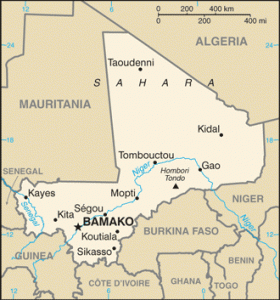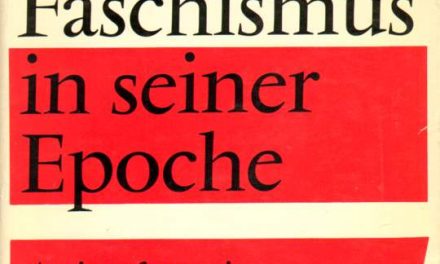Earlier today, Algerian sp ecial forces raided a natural gas complex near In Aménas, Algeria where members of an al Qaeda-affiliated Islamist group had been holding hostage a group of workers from several countries. Tragically, the seven remaining hostages were killed by the militants before being killed themselves by the Algerian troops. That is in addition to at least sixteen other hostages killed in the initial attack on the complex and an earlier helicopter raid by the Algerian military. The militants claimed that the attack was in retaliation for Algeria’s granting of airspace for French intervention in the conflict in neighboring Mali. Although the hostage crisis has made the U.S. public more aware of that conflict, we should not let ourselves turn our attention away from Mali now that the hostage crisis is over.
ecial forces raided a natural gas complex near In Aménas, Algeria where members of an al Qaeda-affiliated Islamist group had been holding hostage a group of workers from several countries. Tragically, the seven remaining hostages were killed by the militants before being killed themselves by the Algerian troops. That is in addition to at least sixteen other hostages killed in the initial attack on the complex and an earlier helicopter raid by the Algerian military. The militants claimed that the attack was in retaliation for Algeria’s granting of airspace for French intervention in the conflict in neighboring Mali. Although the hostage crisis has made the U.S. public more aware of that conflict, we should not let ourselves turn our attention away from Mali now that the hostage crisis is over.
The conflict in Mali is quite complex. In January of 2012, rebels from the Tuareg ethnic group of northern Mali, calling themselves the National Movement for the Liberation of Azawad (MNLA), began an armed conflict against the government, seeking their own independent state named Azawad. The Tuaregs in Mali and Niger claim that, since the independence of those two countries in 1960, they have been marginalized by the more dominant black Africans in the southern regions of the two countries. The Tuaregs of Mali have engaged in two previous insurgencies in 1990 and 2007. By March of 2012, the MNLA had gained control of a significant section of territory in northeast Mali and was within striking distance of the important city of Timbuktu.
At that point, a group of soldiers dissatisfied with the waging of the war so far mounted a coup against the democratically-elected president of Mali, Amadou Toumani Touré, whose government was already weakened as a result of an ongoing food crisis in the country. Predictably, the chaos unleashed by the coup enabled the MNLA to capture Gao, the northern headquarters of the Malian army, and Timbuktu.
Throughout the conflict, the MNLA had been aided by a Malian Islamist group, Ansar Dine. This group began to implement Islamic law in rebel-held territories, including the cities of Gao and Timbuktu. Most notoriously, in Timbuktu the group burned down the tomb of a Sufi saint, a UNESCO World Heritage site. In some places residents began protesting the imposition of Sharia, while in Gao the non-Tuareg populace called on the Islamists to drive out the MNLA. The MNLA and Ansar Dine entered into open conflict over control of northern Mali. By November Asar Dine had gained control of most of the territory previously held by the MNLA. The government of Mali, which had been returned to civilian hands in April, continued to fight against the rebels.
In October the Malian government and the Economic Community of West African States (ECOWAS) requested action from the United Nations Security Council, which passed a resolution planning the use of force, and in December passed another resolution authorizing the deployment of an African-led International Support Mission in Mali (AFISMA). After delays in securing the funding for AFISMA and continued advances by the Islamists, France began air strikes against the rebels on January 11, 2013, and has also sent special forces to the area.
The conflict in Mali, and especially the French involvement, raises some ethical concerns:
1) A War Without Borders
The conflict in Mali for many reasons threatens to turn into a massive regional war, and so United Nations-authorized forces must be sure to take measures to prevent this from happening.
The Tuareg, like the Kurds in the Middle East, were the losers in the carving up of post-colonial Africa; their traditional homelands were divided among Mali, Niger, Algeria, and Libya. The 1990 Tuareg uprising cut across both Mali and Niger, and the ongoing conflict today threatens to do so, as well.
Similarly, the Islamists of Ansar Dine are members of an international network of like-minded terrorists and militants. Throughout the conflict, Ansar Dine has been aided by the Movement for Oneness and Jihad in West Africa (MOJWA), a multi-national group that in 2011 broke off from al-Qaeda in the Islamic Maghreb (AQIM) to engage in operations further south than AQIM was willing to support. Members of AQIM, the preeminent terrorist organization in North Africa, were also seen taking part in combat in Mali. Ansar Dine has also developed ties with Boko Haram, an Islamist group engaged in conflict with the government of Nigeria.
The risk of spreading conflict is a result of the weak borders in the Sahara/Sahel region. Many of the states in the region have limited control over their territory to begin with, but it is particularly hard to maintain control over the desert regions where the conflict is taking place. The area has long been a haven for smugglers, terrorists, and other criminals. This lawlessness creates the possibility for a terrorist base along the lines of Somalia or Afghanistan, which is precisely why the conflict has garnered so much international attention. The fall of Muammar Gaddafi in 2011 also created a power vacuum in Libya, particularly in the south of that country; weapons and fighters have been flowing into Mali for months.
2) A Colonial Past
The intervention of France into the conflict adds another dimension, as France was the colonial ruler of most of West Africa, including Mali up until the 1950s. Although France has valid humanitarian and security concerns, its involvement in the conflict risks widening the conflict.
Even in the 1950s, when it became clear that France would lose its African colonies, French leaders realized that they were dependent on Africa both for material resources and as a source of political influence in international politics. At first France attempted to retain influence over its colonies through the French Community, which incorporated the former colonies as semi-autonomous states. The Community had basically dissolved by 1961, when the former African colonies opted for complete independence.
Since then, however, France and French Africa have not gone their separate ways. France has continued to intervene in African affairs, an orientation known as Françafrique. France has given support to dictators and engaged in covert coups in countries such as Gabon, the Republic of the Congo, Chad, and the Central African Republic to maintain access to raw materials, especially oil, and a corps of supportive allies in diplomatic affairs.
France seems to have turned a page under Presidents Nicholas Sarkozy and François Hollande. France has remained involved in Africa, most notably with military interventions in Côte d’Ivoire and Libya in 2011, but with more clearly democratic and humanitarian aims.
Still, France’s involvement in Mali has the potential to re-awaken anti-colonial passions. The Islamists are already appealing to anti-Western rhetoric, referring to the French as “crusaders.” The hostage crisis in Algeria, which was undertaken by the group Katibat al-Multahemeen, another offsheet of AQIM, was a protest against Western involvement. Remarkably, the attack appears to have been planned two months in advance, in anticipation that Westerners would inevitably become involved in Mali.
Also complicating matters is that, as Human Rights Watch is reporting, the Malian government has engaged in human rights abuses against Tuaregs and Arabs. If the government continues to violate the rights of marginalized ethnic groups, the military campaign risks being undermined and the French risk being tarred for their support of the government. So far, African leaders are supportive of French involvement, but continued support is not assured.
3) Undermining the Rule of International Law
United Nations Resolution 2085, authorizing the use of force, clearly specified that military action would be taken by AFISMA. President Hollande claims that the intervention is still consistent with the resolution. U.N. Secretary General Ban Ki-moon seems to have given his tacit support to France’s intervention, only insisting that its actions “be consistent with the spirit” of the resolution.
Yet this is the second time in two years that France has gone beyond the letter of a Security Council resolution to militarily intervene in another nation. On March 17, 2011 France actively backed a Security Council resolution authorizing a no-fly zone over Libya to prevent further attacks by Muammar Gaddafi’s troops against the Libyan people. Then, two days later, France and its NATO allies (including the United States) began direct military strikes against Libyan forces, without any further authorization from the Security Council.
Although so far the interventions in Libya and Mali have not generated serious international protest, actions such as these risk putting in danger the recently developed doctrine of the responsibility to protect (R2P), which enshrines an international duty to intervene, militarily if necessary, in situations of conflict or the abuse of human rights. If powerful Western nations such as France and the United States continue to go beyond the letter of international law, it risks increasing suspicions that the doctrine of R2P is itself a tool of neo-imperialism.
4) The End Game?
Finally, it is not clear what a just peace in Mali would look like, or who will take responsibility for bringing it about. France’s immediate goal seems to be to drive the Islamists out of the populated areas of northern Mali. Yet the vast size and lawlessness of the Sahara/Sahel region militates against any permanent solution. France is unwilling to commit the troops and resources necessary to secure the entire region. ECOWAS has already shown itself not up to the task.
Similarly, the original conflict between the Tuareg and other Malians remains unresolved. Ironically, the MNLA has allied with the Malian government against the Islamists, and has backed down from its demand for an independent Azawad, agreeing to greater regional autonomy instead. Still, once the Islamists are defeated, negotiations between the MNLA and the government will take place, and given the long history of conflict, will not be easy. The conflict has also created a humanitarian crisis, with at least 150,000 refugees fleeing to neighboring countries and at least 200,000 displaced persons within Mali. The process of building peace in Mali will take years, even if, with French intervention, the military conflict ends relatively quickly.




